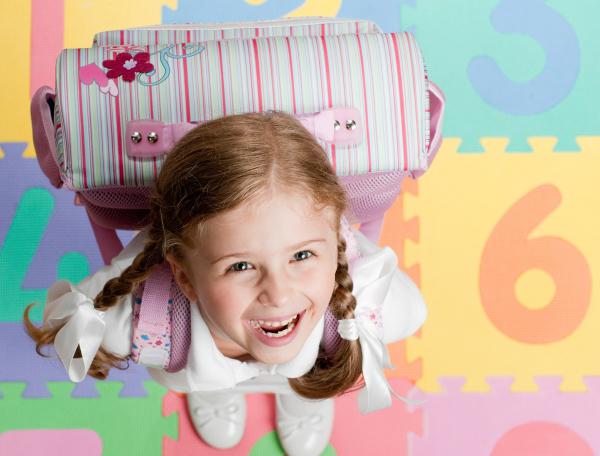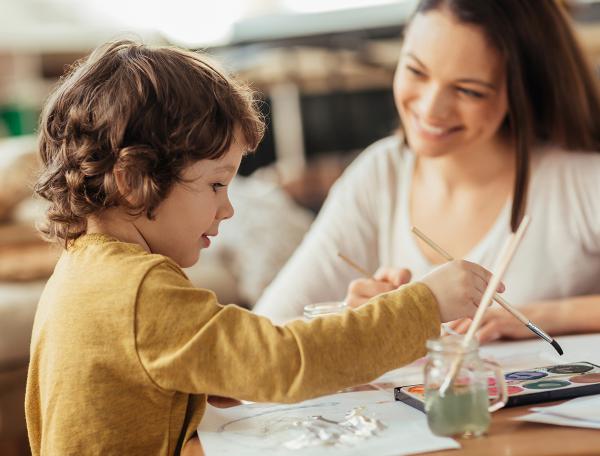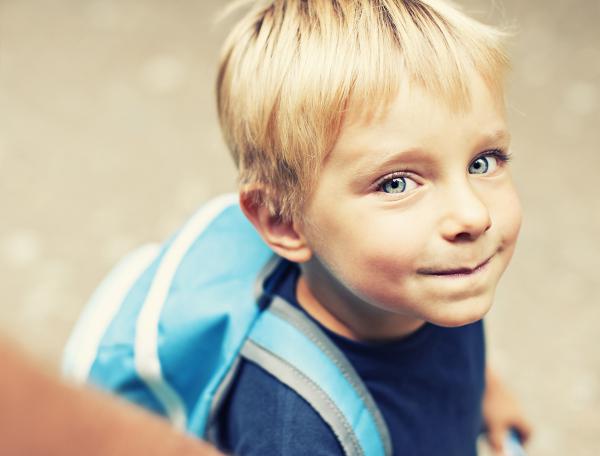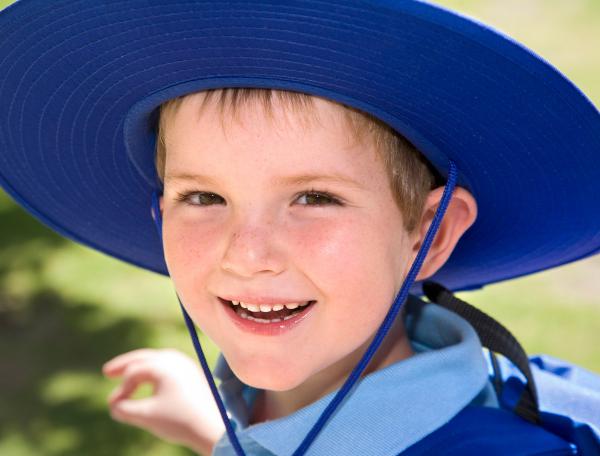Preschool zone ahead!

Is your child about to start preschool? Here are seven tips to help you get them into the zone, excited and ready to learn!
Paint the picture
Help to make preschool ‘real’ for your child by talking about the things they’ll get to do, such as making art, playing games, and making friends. If you’ve already been to the preschool together, remind them of what they’ve seen.
Remember all the jigsaw puzzles they have? You’re going to have a great time doing those!
Read and watch
Books and TV shows can also make preschool real, and often show your child how to handle different situations. Your child’s preschool and your local library may have books you can borrow, and don’t forget friends with children around the same age. If you’re looking to buy books, try your local bookshops, or search the internet for ‘books about starting preschool’. For TV shows, combine search terms such as ‘[showname]’, ‘preschool’, ‘kindergarten’ and ‘first day’ to see if your child’s favourite shows have any suitable episodes. Make sure you check the search results before showing them to your child!
Skill up
Some new preschoolers struggle with manipulating buttons, water bubblers, lunchboxes, toilet door locks, and flush mechanisms. Build your child’s confidence by giving them the chance to practise these skills before school starts. Praise their efforts, reassure them that it will get easier as their hands get stronger, and remind them that their teacher will be happy to help them if they need it.
Get comfortable
Starting school often means new clothes and shoes. Let your child wear their uniform before the first day of school – it helps them start to think of themselves as a ‘school kid’, and gives you the chance to fix any scratchy tags or tricky zips! Getting your child to wear in new shoes before school starts is also really important – if your child’s feet are uncomfortable on day one, they’re less likely to go running around the playground with their new friends.
Talk about it
If your child seems anxious, reassure them that lots of their classmates will also be feeling nervous as well as excited. Ask if they are worried about something in particular – it can be the most surprising thing, like getting locked in the toilets, or going into the wrong classroom after lunch, or forgetting to wash their hands. Then help your child think of how they can avoid the situation, or what they can do if it does happen.
Be positive!
When talking to your child, be positive about learning and school, even if you didn’t have good experiences at school yourself. If you’ve already met your child’s teacher, talk about how friendly they were. If you haven’t, you can still talk about teachers in general – how they are kind and helpful, how they want the best for their students, and how much your child is going to enjoy learning from them.
Get more
For more great tips, talk to the preschool or check your state education department website. Many have ‘starting preschool’ booklets, factsheets, and other resources, such as the Tasmanian Department of Education’s tips and videos at http://kinder-ready.tas-education.org (preschool is known as ‘kindergarten’ in Tasmania).
* The Australian Government provides funding to ensure all children have access to a preschool program, in the year before full time school. Depending on where you live, this year may be called ‘preschool’ or ‘kindergarten’.
States and territories have responsibility for providing preschool/kindergarten in their jurisdiction. To find the website for your state/territory education department, check out Your one-stop education shop .








